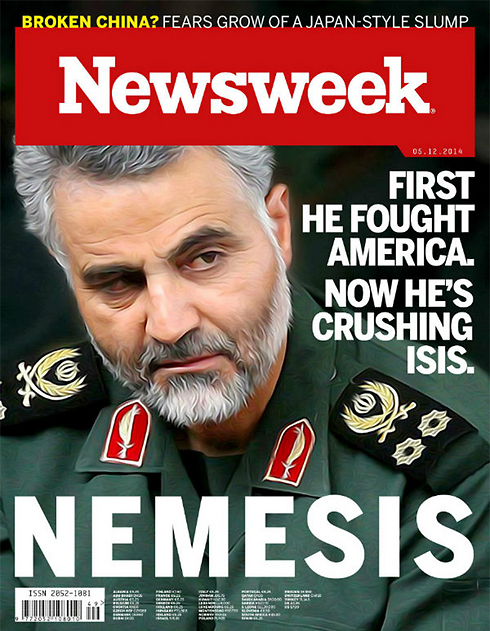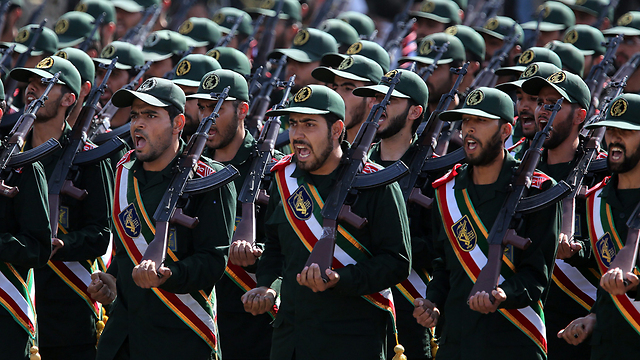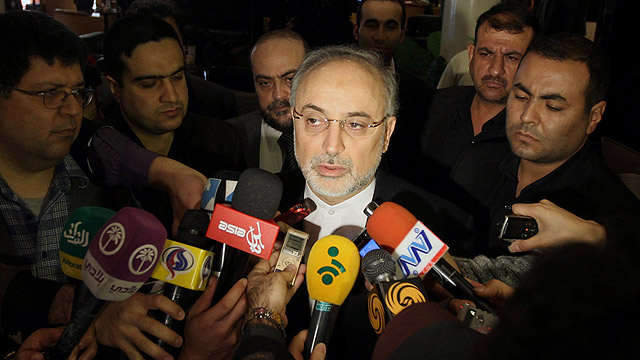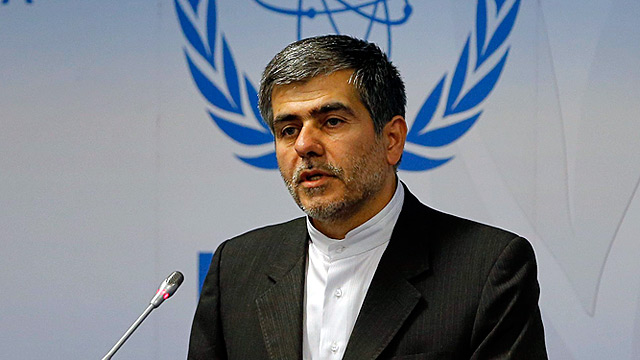Sanctions imposed on Quds Force and its commander Soleimani to be lifted 8 years into agreement implementation; hundreds of individuals, organizations, companies also removed from black list.
Yitzhak Benhorin
The lion's share of the historic nuclear deal signed with Iran on Tuesday focuses on the removal of sanctions imposed on the Islamic Republic. Tehran will be able to export oil without restrictions, its officials could fly without limitations, the country's assets will be unfrozen, and more.
Out of the 159 pages of the agreement and its annexes, most of them are dedicated to a list of individuals, organizations and companies who will be rewarded with some sanctions relief.
One of the names on the list led to surprise and speculation - General Qassem Soleimani, the commander of Iran's elite Quds Force since 1998, a unit responsible for the Iranian Revolutionary Guard Corps' operations outside of the country.
The shadowy spymaster helped Shiite Iraqi militants kill American soldiers, came to the aid of Syrian President Bashar Assad and was accused by the Americans of orchestrating an attempt on the life of Saudi's ambassador to Washington four years ago on US soil.

Qassem Solemani the commander of Iran's elite Quds Force
US Secretary of State John Kerry denied that the Quds Force commander was on the list, while Iranian Foreign Minister Zarif claimed this was a different Soleimani.
While there is indeed a different Soleimani on the list - Ghasem Soleimani, the Director of Uranium Mining Operations at the Saghand Uranium Mine (Saghand Mine) - he will be delisted at Phase 1 of the agreement, while the IRGC commander will be delisted at Phase 2 - eight years into the deal.
"Qassem Soleimani's UN delisting at Phase 2 will be a result of the termination of the UN sanctions at that point in time. It is important to note that Phase 2 is the last time at which UN sanctions can be lifted, after 8 years into the deal, so sanctions are not being lifted early on Qassem Soleimani," a senior US official said Wednesday.
The official went on to say that while UN sanctions will be removed from the Iranian general, he will remain under US sanctions.
"Since secondary sanctions remain in place on the US side, this means that sanctions on Qassam Soleimani will still have an international effect. Keep in mind, that secondary sanctions targets third-country actors doing business with Iranian persons on the US SDN list," the official said.

Iran's Revolutionary Guards (Photo: EPA)
Another American official told ABC that the inclusion of Soleimani on the list, along with additional sanctions relief, was what brought the Iranians to the negotiating table.
But the "Terror King" Soleimani is not alone on the "whitelist." In total, hundreds of individuals, organizations, companies, vessels and aircraft were removed from the black list under the new agreement.
In addition to Soleimani himself, sanctions imposed on his Quds Force, the "Iranian Mossad," will also be lifted. The Quds Force is believed to be behind many terror attacks, some of which targeted Israelis. Sanctions will also be removed off the IRGC Air Force and senior officials in Tehran's nuclear program.
The list includes Ali Akbar Salehi, the former Iranian foreign minister who currently serves as the head of the Atomic Energy Organization of Iran. Another name on the list is one of Salehi's predecessors, Fereydoon Abbasi-Davani, the head of the Department of Physics at the University of Tehran, who survived an assassination attempt in 2010. Foreign media attributed that assassination attempt to Israel - also credited for the assassinations of several other Iranian scientists.

Ali Akbar Salehi (Photo: AFP)
Mohammad Reza Naqdi, the commander of the Basij paramilitary force, is also on the list. He views "removing Israel from the map" as an Iranian goal, even if the Islamic Republic cannot build a nuclear bomb.
Also on the list is former minister Mostafa Mohammad-Najjar, formerly a senior officer in the IRGC, who has been quoted as expressing support of an attack against Israel, and Ali-Mohammad Naderi, the head of Iran's Aviation Industries Organization (that will also get sanctions relief).

Fereydoon Abbasi-Davani (Photo: AFP)
According to the agreement, the head of the UN's International Atomic Energy Agency (IAEA), Yukiya Amano, will release a report by December 15, determining whether Iran was meeting the terms of the agreement. If world powers are satisfied that Tehran is indeed honoring the agreement, a gradual removal of international sanctions will begin, including those imposed on senior Iranians and companies. The arms embargo on Iran will also be removed in the future. Five years after the agreement goes into effect, the ban on selling conventional weapons to Iran will be removed and in eight years, an embargo on ballistic missile technology will also be removed.
After sanctions are lifted, Iran will be able to import and export crude oil, petroleum products, gas and petrochemical products, and operate a sea port through which it could trade a variety of goods. It could export gold, precious metals and diamonds, graphite, raw or semi-finished metals such as aluminum and steel, and coal.
The agreement detailed all the aspects of the sanctions that will be lifted by the United Nations: The transfer of funds between institutions and individuals from the United Nations and Iranian officials and institutions, including financial institutions; banking operations; financial support for trade with Iran; commitment to grants to the Iranian government; transactions in government bonds; import and export of oil and gas from Iran; export of equipment and technology for the gas and petrochemical sector, as well as investments in this sector; and access to cargo flights to United Nations airports.
In addition, the United States will remove sanctions in these areas: Banking and financial transactions with Iranian banks and financial institutions, including the Central Bank of Iran, personalities and entities identified with the Iranian government; trade in the Iranian rial; trade restrictions on Iranian revenues from abroad; efforts to reduce Iranian sales of crude oil; export and sale of petroleum products to Iran; transactions with Iran's energy sector; transactions with Iranian maritime sector and port workers; trade in gold, precious metals and diamonds. The United States will also allow the sale of aircraft for commercial flights and related parts and services to Iran.
Credit to Ynet
No comments:
Post a Comment